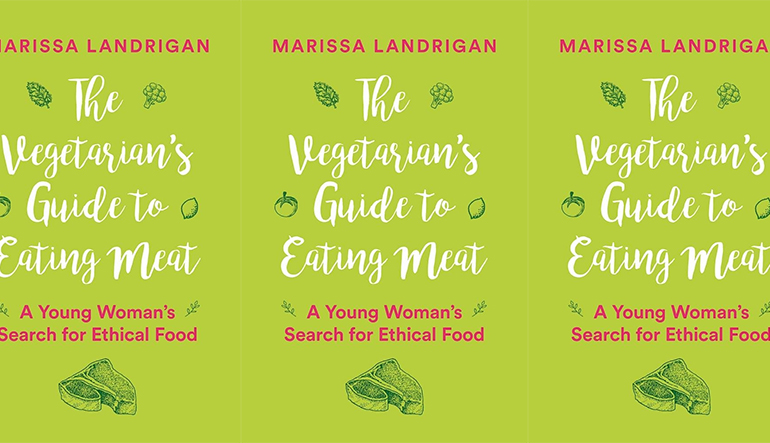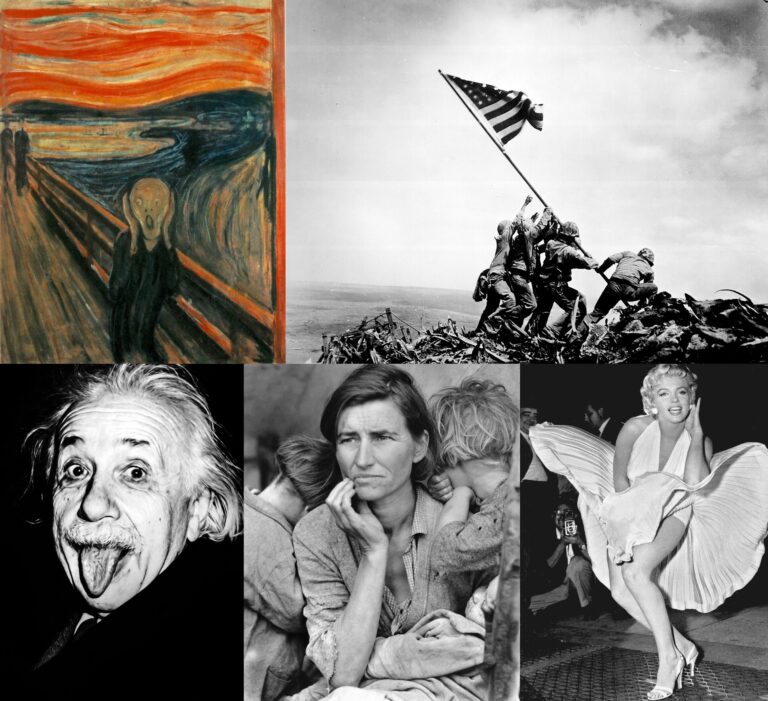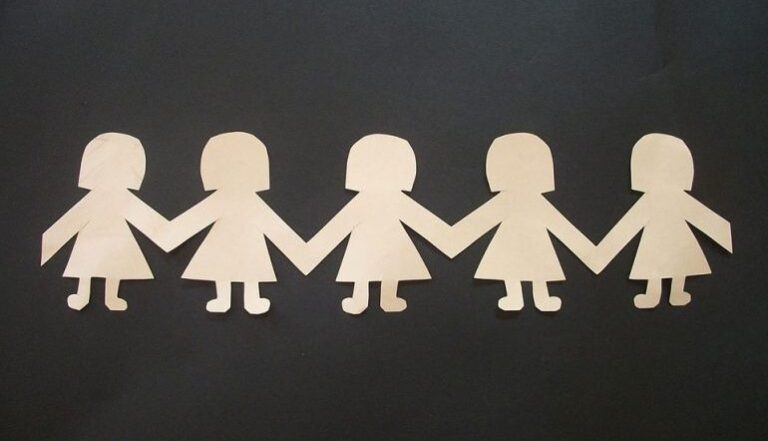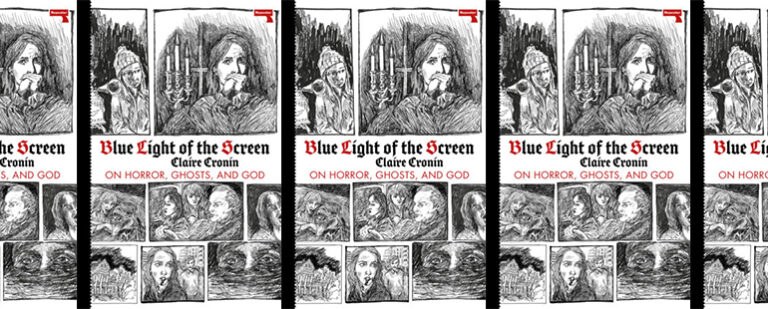Review: THE VEGETARIAN’S GUIDE TO EATING MEAT: A YOUNG WOMAN’S SEARCH FOR ETHICAL FOOD by Marissa Landrigan

The Vegetarian’s Guide to Eating Meat: A Young Woman’s Search for Ethical Food
Marissa Landrigan
Greystone Books; April, 2017
234 pp; $22.95
“We all kill a little,” a fly fisher tells creative nonfiction writer Marissa Landrigan near the end of her first book, The Vegetarian’s Guide to Eating Meat: A Young Woman’s Search for Ethical Food. He points out that driving cars, buying foreign-made clothing, and using chemically produced body products contribute to suffering just as surely as does eating meat. “The least you can do is look at it,” he says.
That moment encapsulates the conclusions that Landrigan arrives at in the course of this memoir. Though she starts out, as a college student, choosing vegetarianism due to sentimental motives, gradually her thinking becomes more complex, eschewing simple labels and clichés, ultimately embracing contradictions. Food choices, she argues, are not just an animal rights question, but one embodying environmental, labor, and fair trade concerns.
This could be a dry, earnest, or self-righteous exploration, but instead Landrigan examines her dietary dilemmas with charm and humor, always keeping at the forefront the cardinal rule of memoir: she is harder on herself than on anyone else, self-critical without becoming self-involved.
Landrigan’s journey begins with her New England childhood, where, an introvert in an Italian family that routinely gathered in the kitchen and bonded over the rituals of preparing food and eating meals, she hid under the table and read a book. Becoming a vegetarian as a student at Ithaca College, Landrigan admits that she changed her “diet without changing my world view.” That world view evolves as she relocates for relationships, jobs, and graduate school, living on both coasts and in the Midwest.
As she investigates what it means to make ethical food choices, Landrigan visits a Wisconsin slaughterhouse and an organic farm in Iowa. She accompanies a hunter on an expedition in Montana and becomes an expert on the cultures of farmers markets across the country. Farmers markets, she writes, “connect us directly to the place we live,” offering insight about “the land and the people who inhabit it. Learning all that is the first step to placing ourselves within that giant quilt, the beginning of finding our own identity in the fabric of a place.”
Landrigan makes a case for the importance of our “individual responsibility to shape the world we want to live in, rather than to simply swear off it.” Through her own connections to food and place, family and heritage, Landrigan raises significant questions while also finding her own sense of identity and belonging.


